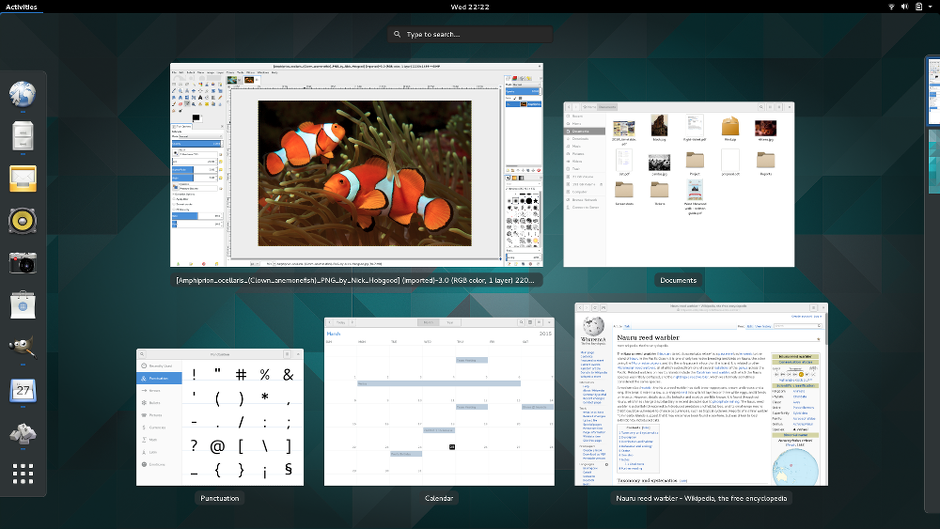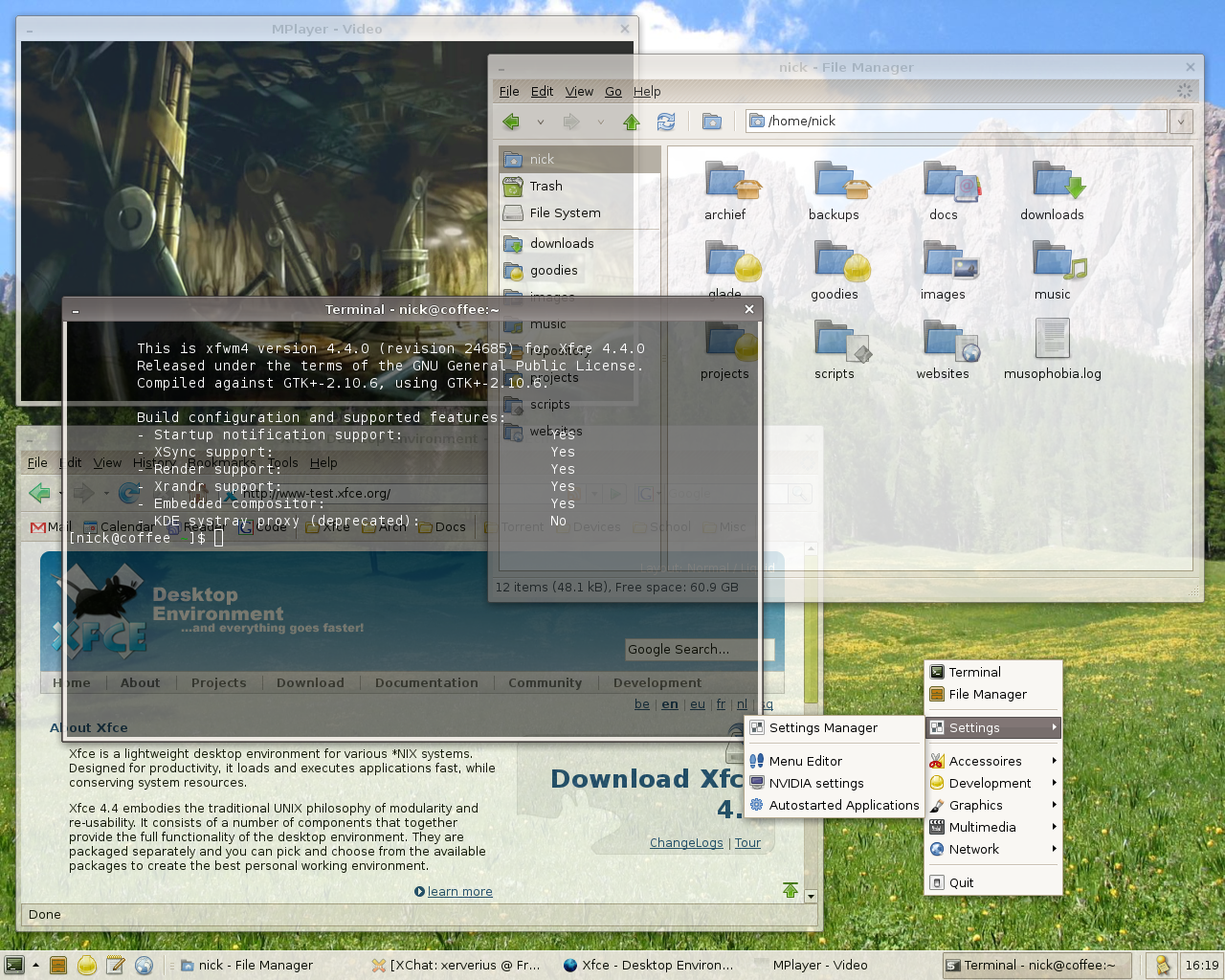In todays post i hereby provide some best resources available in internet for linux reference ,it will help you to gothrough about some important commands and get expertise.





If you're looking for some pro-tips for your favorite text editor, you might be interested in awesome-atom, sublime-bookmarks, vim-galore, awesome-emacs, or awesome-vscode.
Books
The Linux Command Line [4.34] [FREE]
This is a great introduction to the Linux command line. - @4iarYou've experienced the shiny, point-and-click surface of your Linux computer—now dive below and explore its depths with the power of the command line.
The Debian Administrator's Handbook, Debian Wheezy from Discovery to Mastery [4.8] [FREE]
Good book that teaches you the basics of Debian GNU/Linux administration. - @elninosiIt covers all the topics that a competent Linux administrator should master, from the installation, update of the system, up to the creation of packages and the compilation of the kernel, but also monitoring, backup and migration. Plus advanced topics to secure services, automated installations, or virtualization.
Bash Shell Scripting [FREE]
Currently this book provides an introduction level knowledge of Bash.
Courses
Introduction to Linux (LFS101x-1) [Free]
Organized by the Linux Foundation, it's a great free course to learn basics about Linux. - @aleksandar-todorovicLinux Alternatives to Windows Applications [Free]
If you used Windows and decided to switch to Linux, this course should help you to find their alternatives. It's pretty short and you can finish it in a day. - @aleksandar-todorovicBash Learning Resources
- Beautiful Bash: Let's make reading and writing bash scripts fun again!
- Best Practices for Writing Bash Scripts
- Shell Style Guide
- Linux Fu: Better Bash Scripting
- Bash Guide for Beginners
- Advanced Bash-Scripting Guide
X Desktop Environments
You cannot talk about a unified Linux look because there is no such thing.

GNOME
GNOME 3 is an easy and elegant way to use your computer. It is designed to put you in control and bring freedom to everybody. GNOME 3 is developed by the GNOME community, a diverse, international group of contributors that is supported by an independent, non-profit foundation.

KDE
The KDE® Community is an international technology team dedicated to creating a free and user-friendly computing experience, offering an advanced graphical desktop, a wide variety of applications for communication, work, education and entertainment and a platform to easily build new applications upon. We have a strong focus on finding innovative solutions to old and new problems, creating a vibrant atmosphere open for experimentation.

Xfce
Xfce is a lightweight desktop environment for UNIX-like operating systems. It aims to be fast and low on system resources, while still being visually appealing and user friendly.

LXDE
The "Lightweight X11 Desktop Environment" is an extremely fast-performing and energy-saving desktop environment. Maintained by an international community of developers, it comes with a beautiful interface, multi-language support, standard keyboard short cuts and additional features like tabbed file browsing. LXDE uses less CPU and less RAM than other environments. It is especially designed for cloud computers with low hardware specifications, such as netbooks, mobile devices (e.g. MIDs) or older computers. LXDE can be installed on many Linux distributions including Debian, Fedora, OpenSUSE and Ubuntu. It is the standard for Knoppix and lubuntu. LXDE also runs on OpenSolaris and BSD. LXDE provides a fast desktop experience; connecting easily with applications in the cloud. LXDE supports a wealth of programs that can be installed locally with Linux systems. The source code of LXDE is licensed partly under the terms of the GNU General Public License and partly under the LGPL.

Other Desktop Environments
- Cinnamon - Strives to provide a traditional user experience.
- EDE - Small desktop environment built to be responsive, light in resource usage and to have a familiar look and feel.
- LXQt - Qt port and the upcoming version of LXDE, the Lightweight Desktop Environment. It is the product of the merge between the LXDE-Qt and the Razor-qt projects: A lightweight, modular, blazing-fast and user-friendly desktop environment.
- MATE - Provides an intuitive and attractive desktop to Linux users using traditional metaphors. Fork of GNOME 2.
- Pantheon - Pantheon is the default desktop environment originally created for the elementary OS distribution. The desktop has some similarities with GNOME Shell and macOS.
- Unity - Soon-to-be-deprecated DE designed by Canonical for Ubuntu. Based on GNOME.
X Windows Managers
- 9wm - Window manager that attempts to emulate the Plan 9 window manager 8-1/2 as far as possible within the constraints imposed by X.
- awesome - Highly configurable window manager for X. Fast and extensible.
- Blackbox - Lightweight window manager for the X window system, without library dependencies. Built using C++.
- bspwm - Tiling window manager that represents windows as the leaves of a full binary tree.
- Compiz - OpenGL compositing window manager. It has a plug-in system to be changed at runtime.
- dwm - Dynamic window manager for X. It manages windows in tiled, monocle and floating layouts. All of the layouts can be applied dynamically, optimising the environment for the application and task performed.
- Enlightenment - Window manager bundled with a whole suite of libraries to help you create beautiful user interfaces.
- Fluxbox - Window manager for X, lightweight and easy to handle but full of features to make an easy and fast desktop experience. Built using C++.
- FVWM - ICCCM-compliant multiple virtual desktop window manager for X. Extremely powerful.
- i3 - Tiling window manager. BSD-licensed. Primarily targeted at advanced users and developers.
- IceWM - Window manager with the goal of being fast, simple, and not getting in the user's way.
- JWM - Lightweight window manager for X11. Good choice for older and/or less powerful systems, though perfectly capable of running on modern systems. Built using C.
- Matchbox - Environment for X running on non-desktop embedded platforms such as handhelds, set-top boxes, kiosks and anything else for which screen space, input mechanisms or system resources are limited.
- Mutter - Window manager for X. Default window manager in GNOME 3.
- Openbox - Highly configurable window manager with extensive standards support.
- ratpoison - A simple window manager with no library dependencies, no graphics, and no decorations. Modeled after GNU Screen.
- Sawfish - Extensible window manager. Its aim is to manage windows in the most flexible and attractive manner possible. Built using Lisp-based scripting language.
- wmii - Small, scriptable window manager, with a 9P filesystem interface and an acme-like layout.
- xmonad - Dynamically tiling X11 window manager. Makes work easier by automating aligning and searching for windows. Built using Haskell.
Applications
The list of awesome Linux applications that you should be using.If you're looking for some pro-tips for your favorite text editor, you might be interested in awesome-atom, sublime-bookmarks, vim-galore, awesome-emacs, or awesome-vscode.
GUI-based Applications
GNOME-based
- Builder - IDE for GNOME that is focused on bringing the power of the GNOME platform to more developers.
- Evince - The most popular document viewer on the GNOME platform.
- Gedit - Powerful general purpose text editor.
- Polari - IRC client built to be easy to use.
- To Do - Minimalistic personal task manager designed to fit right into your GNOME desktop.
Pantheon-based
- FeedReader - RSS desktop client able to integrate with multiple online services.
- Go For It! - To-do list with built-in productivity timer.
- NaSC - Intelligent calculator app.
- Spice-Up - Desktop presentation app.
- Vocal - Podcast client for the modern desktop.
KDE-based
For more KDE-based apps, visit: https://www.kde.org/applications/Not based on any desktop environment
- Atom - Hackable text editor for the 21st century.
- ghostwriter - Distraction-free Markdown editor.
- GParted - The most popular disk partitioning software out there.
- Kodi - Most popular entertainment center.
- Zathura - Highly customizable document viewer. It provides a minimalistic and space saving interface as well as an easy usage that mainly focuses on keyboard interaction.
Third-party clients for online services
Q: Why third-party apps? Why not the official clients?
A: Because, in 99% of the cases, official clients are proprietary.
- Corebird - Twitter client.
- GNOME Twitch - Twitch player.
- Caprine - Facebook's Messenger client with some added privacy features.
- PB for Desktop - Pushbullet client.
- ramme - Instagram client.
- ScudCloud - Slack client with additional features (compared to the original Slack client).
- Whatever - Evernote client based on the web version.
Package management and creation tools
Distro-oriented:- Y PPA Manager (Ubuntu) - Manage PPAs and search for packages.
- pirut (Fedora) - Provides a set of graphical tools for managing software.
- Synaptics (Debian and
.debusers) - Graphical package management program forapt. - YaST (openSUSE) - Main package management tool on openSUSE.
- YumEx (Fedora) - A GUI for the
dnfpackage manager. - Yaourt (Arch) - A wrapper for
pacmanwhich adds automated access to the AUR using the same syntax as pacman. - Aura (Arch) - Secure, multilingual package manager.
- AppImageKit - Using AppImageKit you can package applications in the AppImage format that runs on common Linux-based operating systems, such as RHEL, CentOS, Ubuntu, Fedora, debian and derivatives; one app = one file.
Console-based Applications and Tools
You might also be interested in checking out awesome-shell, awesome-bash, awesome-zsh-plugins or awesome-fish.- cmus - Small, fast and powerful console music player.
- fuck - Command line tool which corrects your previously mistyped command.
- git - Distributed version control system designed to handle everything from small to very large projects with speed and efficiency.
- glances - Cross-platform system monitoring tool.
- htop - Nice looking, customizable task manager.
- nano - Simple to use text editor.
- photorec - Useful tool for restoring deleted files.
- ranger - Vim-inspired file manager for the console.
- screenFetch - Fetches system/theme information in terminal.
- shellcheck - Static analysis tool for shell scripts.
- speed-test - Test your Internet connection speed and ping using speedtest.net.
- testdisk - A tool for disk partition recovery.
- tig - Text-mode interface for git. It functions mainly as a Git repository browser.
- vim - Advanced text editor that seeks to provide the power of the de-facto Unix editor 'Vi', with a more complete feature set.
- vtop - Easily-extendable activity monitor.
- wavemon - Monitoring application for wireless network devices.
- youtube-dl - A tool to download videos from YouTube and other video sites.
Useful Websites
Compute Freely
A friendly place to start for the Free & Open Source Software and Linux curious.
AlternativeTo
Find better alternatives to the software you already use or a replacement for software you cannot or do not want to use.
Linux Foundation
The Linux Foundation is a non-profit consortium dedicated to fostering the growth of Linux. Founded in 2000, The Linux Foundation sponsors the work of Linux creator Linus Torvalds and is supported by leading Linux and open source companies and developers from around the world.
Linux.com
For the community, by the community, Linux.com strives to be the central source for informed, reasonable, and intelligent Linux information, software, documentation and answers across the server, desktop/netbook, mobile, and embedded areas.
Linux.org
Although its design is outdated, Linux.org is (probably) the most popular forum and it's full of awesome Linux tutorialsKernel.org
The Linux Kernel Organization is a California Public Benefit Corporation established in 2002 to distribute the Linux kernel and other Open Source software to the public without charge.
Opensource.com
Opensource.com is an online publication focused on how open source is applied to different areas including business, education, government, health, law and other disciplines of life.
Our goal is to further the open source way by sharing the open source movement. Our community of readers is made up of those who believe that open participation and sharing can tackle the business, social, environmental, and technological challenges facing us today.
Linux.die
Linux.die is a resource with documentation, tutorials, books, etc in Linux.




0 Comments